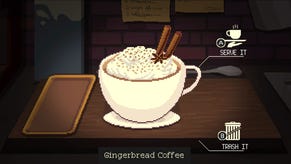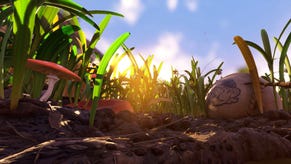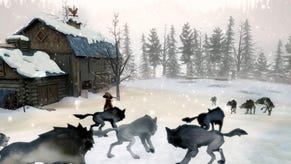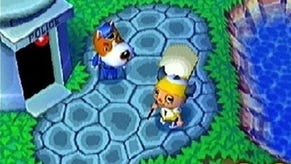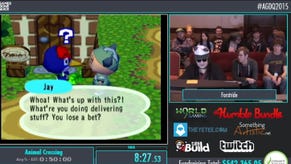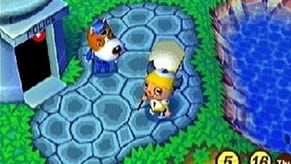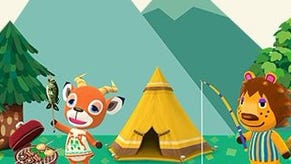Retrospective: Animal Crossing
DO NOT ESCAP.
Tristero was my one, my only, my only ever Animal Crossing village. I shared it with Stu - we passed it back and forth, along with the disk and a scratched copy of Freeloader - and we both lived there. I was called McFly - after the film, okay? - and he was called StueyP: a name, I think, that came from his computer logon at work. We were asynchronous neighbours, living across from each other in a tiny cobbled square. He had much nicer wallpaper than I did.
We also shared Tristero with Spike, a punk rock rhino (I cried when he left), Aziz, a laid-back Lion who liked to play football outside my house at nights, and a seemingly unending supply of grumpy frog folk who would move in, bitch about things, score some sweet matching chairs, and then pack up and head off again. Jerks.
Other local eccentricities included a bizarre bias to having Gulliver, the useless sailor, washing up on the shore. On the flipside, I was lucky to meet Sahara, the travelling carpet salesmen once every six months. No rugs for me. Just Drunken shipmates. (It's part of a wider trend.)
Ours was a world of endless letter writing, chats about favourite slang, and fishing. The seasons changed, festivals I barely understood came and went, I stayed up 'til four every few weeks to meet Whisp, the wandering ghost, if I'd got behind on the weeding (he would do it for you if you netted five spirits for him.)
When Stu came over we'd connect to strange devices like the e-Reader, which allowed us to scan in weird little imported cards for goods, and the GBA, that let us explore a not-very-exciting tropical island. It was exciting to us, though, because we couldn't be bothered to cobble the necessary wires together very often, so it had rarity value. Besides, its coconuts played havoc with the local pear economy, particularly after we planted trees back home.
All of this weird connectivity reminds me how lucky we were that Animal Crossing didn't actually run on the internet. If it had been born in the current climate, it would have to be some horrible kind of service, a mess of micro-transactions and Facebook spam about super pumpkins.
Instead, marching to the ticking of the GameCube's internal clock, which remembered when to start the snow falling, when to send the yearly Groundhog Day letter from mum, and when to tootle Tortimer off on his holidays so that one of us got to actually go inside the lighthouse for him, Animal Crossing became a universe in a bottle.
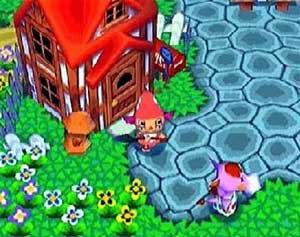
It became a place that was convincing and persistent: always changing, but always comfortably cut off from the real world around it, free from updates, new content, and balancing patches, surrounded by high cliffs, water and a ribbon of train track.
It was my universe, and yet it wasn't perfect - and that was all part of the plan. The little nuances and irritations were why, as that guy says in The Matrix, we accepted the place so readily, and went back to it on a daily basis.
In actuality, as countless cleverer writers have pointed out, beneath the papercraft sweetness, Animal Crossing isn't a very nice place a lot of the time. Animals complain, take against you, test your truthfulness with little quizzes, find you lacking, and move on.
Little bugs infest your house, and turn into little bug ghosts when you step on them. Bees sting you if you shake too many trees, axes break if you hit too many rocks and if you're cursed by the travelling fortune-teller, you may find you spend the next couple of minutes falling over all the time.
And, of course, at the heart of all the unpleasantness is that bastard Nook, a shop-keeper and local entrepreneur who stiffs you for your house and turns you into his serf. You plant flowers for him, compose his ad slogans, pay into his exorbitant mortgage schemes, and take endless crap from him every time you go into his shop to buy the things you need in order to perform the tasks he's just assigned you.

